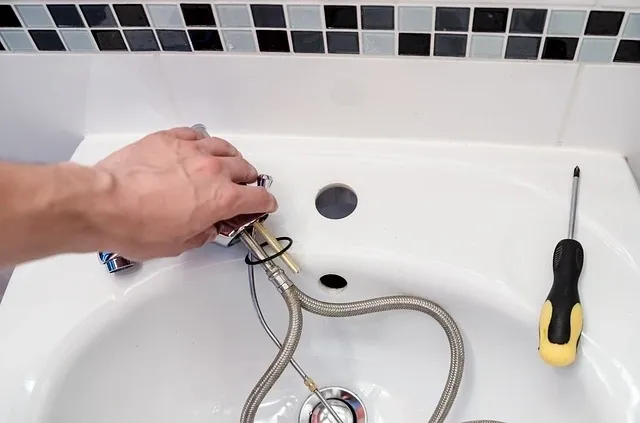Are you tired of dealing with constant plumbing issues and wondering how much it will cost to replace your plumbing system? Look no further as I dive into the world of plumbing replacement costs.
Plumbing is an essential aspect of any building, whether residential or commercial. Issues, from leaky faucets to burst pipes, can cause significant damage and inconvenience if not addressed promptly. However, replacing your entire plumbing system might seem overwhelming and cost-prohibitive.
I will provide insight into the average cost estimates for various plumbing replacement projects so that you better understand what to expect financially before embarking on this venture. So, let’s get started and gain some clarity on this important topic!
Understanding Plumbing Replacement Cost Estimates
Estimating the cost of plumbing replacement is essential for homeowners and property owners planning renovation or repair projects. When delving into Plumbing Estimating New York, it is essential to consider various basics and factors influencing the overall cost. The cost estimate for plumbing replacement typically includes factors such as the type of plumbing fixtures to be replaced, the extent of piping or system upgrades needed, labor costs, materials, permits, and any additional services required, such as drainage or sewage work.
Factors like the accessibility of existing plumbing, the complexity of the installation, and the quality of materials chosen can also influence the overall cost estimate. It is crucial to obtain quotes from reputable plumbers or contractors, consider multiple options, and factor in potential contingencies to ensure an accurate and comprehensive plumbing replacement cost estimate. Correctly understanding these cost estimates helps budget effectively and make informed decisions when undertaking plumbing replacement projects.
Average Costs Associated with Common Plumbing Replacements
When considering joint plumbing replacements, it is helpful to understand the average costs associated with these typical projects. Below are approximate cost ranges for some joint plumbing replacements:
Faucet Replacement:
The average cost for replacing a standard bathroom or kitchen faucet ranges from $150 to $350, including the faucet unit and labor.
Toilet Replacement:
Installing a new toilet can cost between $200 and $700, depending on the type of toilet, additional features, and the complexity of installation.
Water Heater Replacement:
Replacing a water heater can range from $800 to $1,500 or more, factoring in the cost of the unit, installation, and any necessary upgrades.
Garbage Disposal Replacement:
Installing a new garbage disposal unit typically costs between $200 to $400, including the unit itself and installation services.
Pipe Replacement:
The cost of replacing pipes in a home can vary widely based on the extent of the replacement, material used, and accessibility, ranging from $1,000 to $5,000 or more.
Sump Pump Replacement:
Replacing a sump pump can cost between $400 and $1,200, considering the pump unit, labor, and any additional materials required.
Shower Head Replacement:
Upgrading a shower head can range from $50 to $250, depending on the type of shower head selected and any modifications needed for installation.
Sink Replacement:
Installing a new sink in a bathroom or kitchen can cost between $200 and $500, including the sink unit and installation services.
These average cost ranges give a general idea of what to expect when planning joint plumbing replacements. Actual costs may vary based on location, specific project requirements, quality of materials chosen, and contractor fees.
Tips for Obtaining Accurate Plumbing Replacement Cost Estimates
Accurate plumbing replacement cost estimates are essential for budgeting effectively and ensuring a successful project outcome. Here are some valuable tips to help you obtain precise and reliable cost estimates for your plumbing replacement needs:
- Provide contractors with a detailed project scope, including the type of fixtures or pipes to be replaced, specific requirements, and any additional services needed. Clear communication aids in generating accurate estimates.
- Schedule a site visit with potential contractors to assess the existing plumbing system, identify any complexities, and discuss the scope of work in person. Site visits help contractors provide more accurate estimates.
- Specify the quality of materials you prefer for the replacement to ensure that estimates reflect your desired level of craftsmanship. High-quality materials may impact costs but can enhance the longevity of the plumbing system.
- Clarify labor costs with contractors and inquire about hourly rates, additional fees for overtime or emergency services, and the estimated duration of the project. Understanding labor costs is critical to obtaining a comprehensive estimate.
- Determine if permits are required for the plumbing replacement project in your area. Permit costs can affect the overall estimate. Contractors should factor in permit fees and the necessary approvals in their estimates.
- Allocate a contingency amount in your budget to accommodate unforeseen circumstances or changes during the project. Including a contingency helps prevent budget overruns and ensures financial preparedness.
- Request written estimates from contractors outlining all costs, materials, labor, timelines, and terms and conditions. Written estimates serve as a reference point and help avoid misunderstandings later.
By following these tips when seeking plumbing replacement cost estimates, you can streamline the estimation process, make well-informed decisions, and set realistic budget expectations for your plumbing projects.
Conclusion
Plumbing replacement can be a costly but necessary expense for homeowners. When estimating the cost of plumbing replacement, it is essential to consider all factors, such as the type of materials used, the scope of the project, and the labor costs. While it may be tempting to go for the cheapest option, it is crucial to prioritize quality to ensure a long-lasting and efficient plumbing system in your home. If you find yourself facing unexpected plumbing issues, do not hesitate to contact professional help, as delaying repairs can lead to even higher costs down the line. Investing in high-quality plumbing replacements can improve your home’s functionality and comfort while increasing its value.


